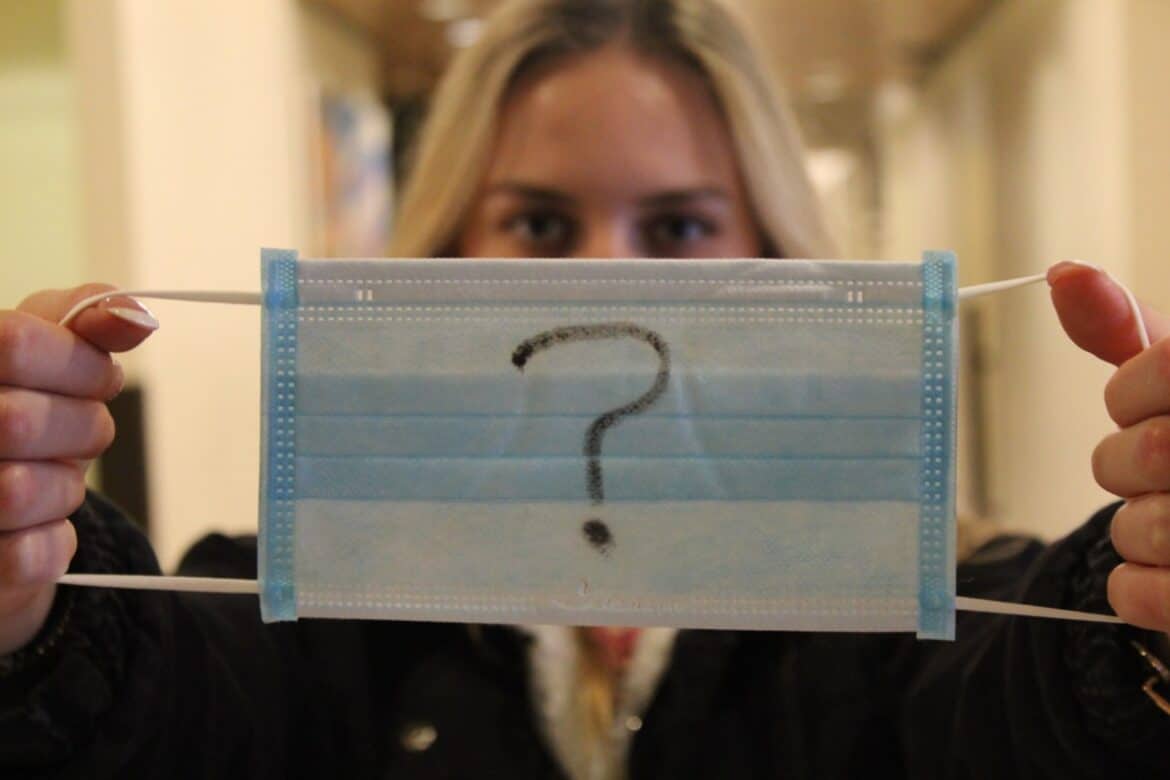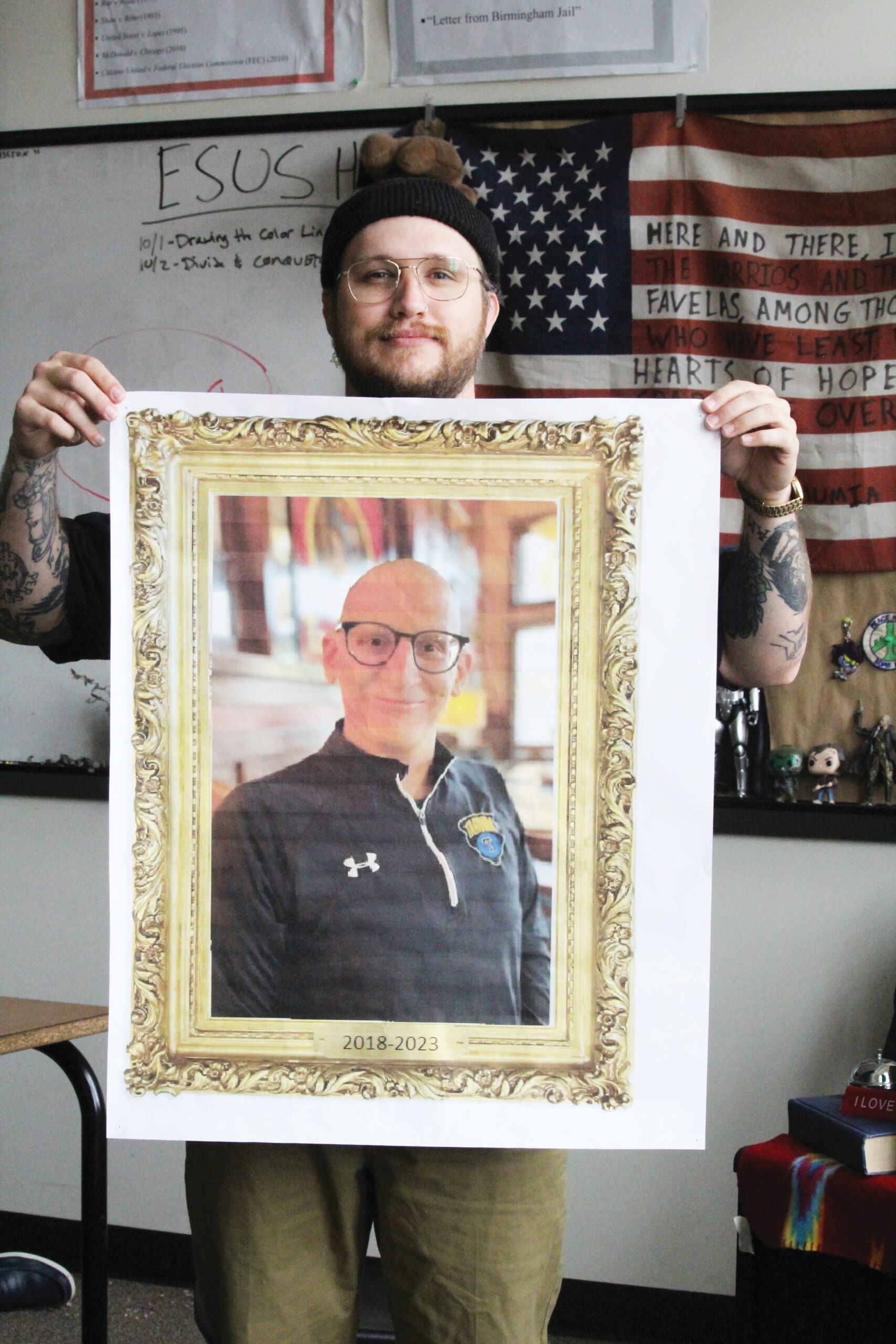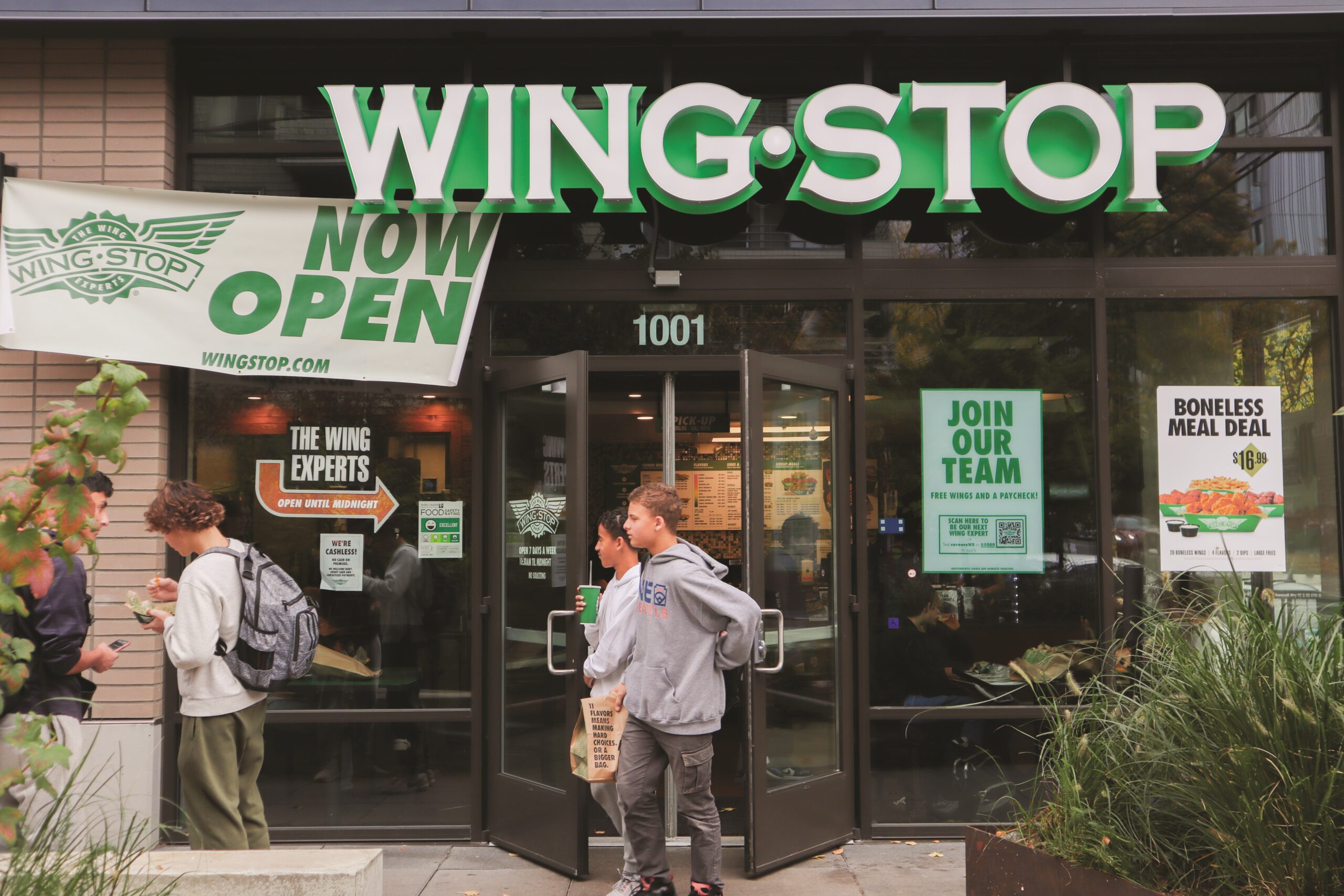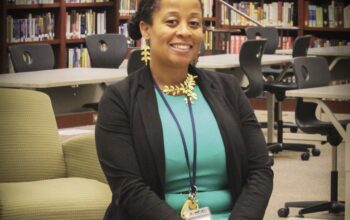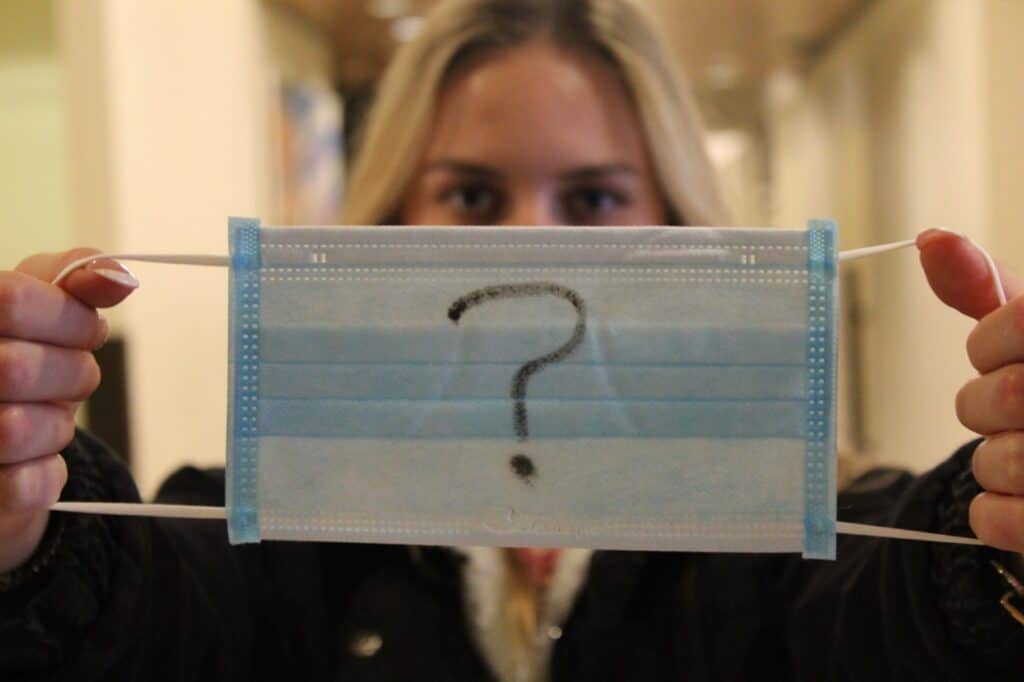
Junior Sayre Burwell
On Wednesday, Mar. 9, Seattle Public Schools (SPS) announced that the district-wide mask mandate would be lifted on Monday, Mar. 14. The district announcement has received mixed responses from students, teachers, and the Seattle Education Association (SEA).
Out of 38 students polled by The Roosevelt News on Sunday, Mar. 13, 71.1% of students planned to continue wearing a mask to school, and 28.9% said that they would return to school maskless. On Monday, Mar. 22, a week after the mandate was lifted, out of 27 students polled, 85.2% of students stated that they have continued wearing a mask to school, and 14.8% have not.
When asked about their decision to continue wearing a mask, an anonymous Roosevelt student explains, “I don’t have a strong opinion about wearing my mask personally, but it seems like it would be wrong not to wear mine when so many students around me are wearing theirs. Wearing or not wearing your mask should be a decision that you make based off of your needs and the needs of the people around you.”
The student continues, “That means you should only take [your mask] off when you are confident the people around you are comfortable with that decision. I will keep wearing mine except in spaces where it is absolutely clear that those around me are comfortable when I don’t wear mine.”
Another student who has chosen to go unmasked states, “My hope is that more people will take the time to try to understand the opposing side of the issue, and understand people’s reasoning and personal risk. I think I’ve made the best decision for myself, but that’s not going to be the same for everybody.”
On Monday, Mar. 21, SPS students participated in a walkout organized by the Seattle Student Union (SSU), a group of student activists across SPS. Many of those students participated in a rally held in front of district headquarters, the John Stanford Center.
The SSU has been demanding better COVID-19 safety protocols since Jan. Luciana Lovik, a coordinator for the SSU, states that in past discussions with SPS, “[When] we mentioned that not everyone in SPS is vaccinated either because they can’t be or they don’t want to be, [SPS leadership] had nothing to say and quickly changed the subject.”
Lovik explained that the rally was a chance “to show how many students feel this way and to give those who are most affected by the decision to drop the mandate a chance to have a voice.”
The SEA is the union that represents SPS teachers and staff. The union has stated that the district’s announcement violates their Memorandum of Understanding agreement (MOU) with the district, which outlines the safety and health protocols for a full return to in-person school.
As Edmund Trangen, a language arts teacher at Roosevelt and union representative, explains, “If a party wants to change anything, you know, in this MOU, you have to come to the table to bargain.” He continues, “The mask mandate for students and staff is part of the MOU, and this announcement was a unilateral decision on the part of the district.”
SEA mask mandate bargains with the district were scheduled to start on Friday, Mar. 11, according to Trangen. The union had planned to bargain universal masking until May 1, giving teachers and students until two weeks after spring break to make necessary arrangements and seek leave if needed.
Trangen explains that the decision made by the district is part of a persistent cycle that has existed even before the pandemic, “There’s a decision made, there’s policy change, there’s not engagement, there’s not bargaining, and then it has to be walked back and there’s confusion and, you know, hurt and frustration, very unnecessarily.”
He continues, “It’s part of the organizational culture of this district to say one thing, do another without a plan, and have total disregard for our rights as members, and the safety and health and educational experience of our school communities.”
Jacqueline Wilson, an AP Environmental Science teacher at Roosevelt, has a toddler that is too young to qualify for a vaccination, and an immunosuppressed husband at home. Wilson says, “I was actually feeling hopeful about the May 1 deadline, that maybe something will happen in April, maybe my son will be at least partially vaccinated.”
Wilson received the email that the mask mandate was going to be lifted during her fourth period class on Mar. 9, and says “I had a student asking me about it literally the second that I saw it, at the same time. So actually, for me it was very much déjà vu of two years ago when we got, in the middle of class, the notification about the school closing for two weeks at that point.”
Wilson continues, “This [announcement] gives me really not enough time for me to apply for leave, to figure out what that looks like, it doesn’t give me time to prepare if I do need to have a sub, and so it’s a lot … I’m balancing my family, I’m evaluating my own risk tolerance, evaluating the impact on my students, evaluating [whether] I have any support.”
Cynthia Coulthard, a biology teacher at Roosevelt, recounts her experience receiving the news, “It was very frustrating too; I mean we didn’t even get a lead time for the community and families. HR [Human Resources] sent their email to teachers; the superintendent sent his email to families and the [automated message] and that was all within a span of like three minutes.” Coulthard has two toddlers who cannot be vaccinated.
Moving forward, Wilson and Coulthard explain the best they can do is communicate their needs with their students, and ask that their classes continue to wear masks inside their classrooms.
“I recognize that we are in the minority at this point of having little kids or immunosuppressed family members,” Wilson states, “There are a lot of people who are ready to move forward, and I understand that, it’s been a long two years. But I hope that others will respect that not everyone’s at the same place, also not everyone has the same level of risk tolerance, and that they will support their colleagues.”
The union has since filed unfair labor practice complaints against the district to the Washington State Public Employment Relations Commission. “It’s an open question,” says Trangen, “whether we can ever really be in partnership with the district as a labor union, or whether we will continue to be in conflict with them always over really basic questions of health and safety.”
